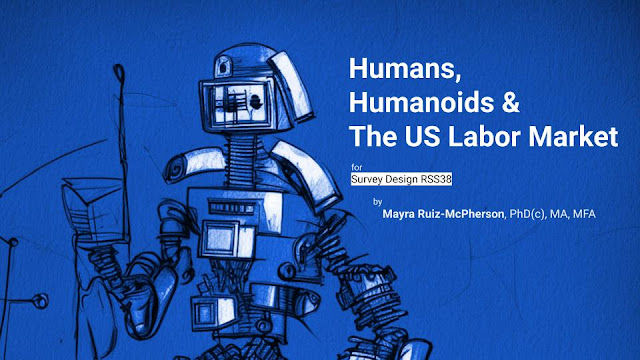The "Reduce Drudgery" Stance of Big Tech Omits Important Ethical Considerations
AI-developing CEOs promote and explain AI as an "efficiency" and "productivity" tool that help us humans ditch mundane, repetitive tasks, and reduce or eliminate what they often refer to as "drudgery."
The usage of 'drudgery' is specific
The word itself means "hard menial or dull work."
Other definitions include:
- "disagreeable and wearisome labor,"
- as well as "ignoble or slavish toil."
Thus, the AI-developing community promotes its anti-drudgery position as a substantial benefit to society with ideas like the following premise:
... if we're all relieved from drudgery, we'll then have more time to "be free," be more productive at work, and do more meaningful things in our lives.
Sounds great, but is it really?
The non-drudgery utopias idealized by Big Tech CEOs don't prominently spotlight the ethical implications of a non-drudgery existence.
On the short term, it's hard to deny that what these CEOs talk about — how AI-enabled technologies reduce or eliminate away our mundane and menial tasks, both at work and in our personal lives — does sound enticing and promising.
But what does all this mean in the long term for employment and work, which is how most people earn a livelihood? Especially when more of our cognitive functioning can (and will continue to) be given and/or offloaded to AI?
Questions arise
As these trends grow and expand (beyond anything we can even begin to imagine at this time), pertinent questions must be asked and discussed, including:
- How dramatically will/does the original job you were hired to do change?
- Does the fact that more rote or lower level tasks are rerouted to AI mean your salary is impacted?
- Does this then mean your employer can add a bunch of new tasks to your original job role to fill the gap that AI's been given (thus taken from you)? Assuming that's more than likely a yes, then does that mean you are promoted? Does your pay increase, decrease, or stay the same?
- Or does your job get completely restructured in such a way that you can even continue to do? Let alone want to do? Or not?
- Whatever the job restructuring might be, how aligned it is with your own career goals or aspirations? Do you even have the luxury of choice to contemplate these questions or are you financially forced to accept whatever the restructuring might be, whether you like/want it or not?
- Or is there no restructuring at all (because the employer "doesn't have to" cater to your employment needs and wants)?
- And if there's no restructuring, then will the company offer to retrain you?
- And if your employer doesn't offer to retrain you, then does that ultimately result in your losing your job to AI?







Comments
Post a Comment